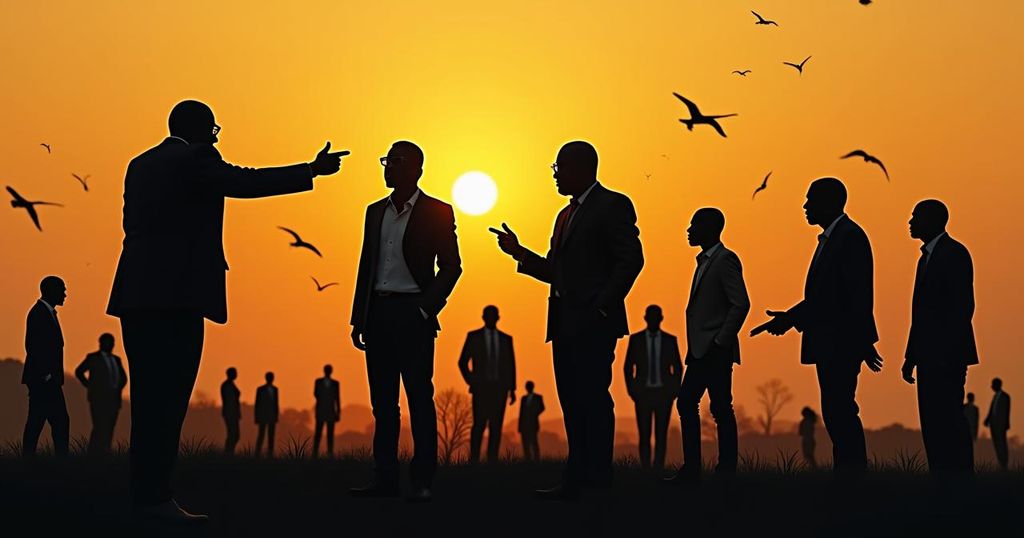Mozambique Elections: The Call for Change Amidst Challenges
Mozambique is set to elect a new president in elections that could see a younger leader emerge for the first time since independence in 1975. With 17 million eligible voters, the elections come amid enduring issues such as armed conflict in Cabo Delgado, a struggling economy, and the legacy of corruption associated with the ruling Frelimo party. Four main candidates are vying for the presidency: Daniel Chapo, Ossufo Momade, Venancio Mondlane, and Lutero Simango, each promising to address the critical challenges facing the nation.
Mozambique is holding significant elections, poised to potentially elect a youthful president for the first time since gaining independence from Portugal in 1975. With over 17 million eligible voters out of a population of 32 million, the nation will conduct presidential, parliamentary, and provincial elections on Wednesday, across 11 provinces. President Filipe Nyusi, leader of the ruling Mozambique Liberation Front (Frelimo), is stepping down after an eight-year tenure, which has been marred by corruption scandals and strains on public trust. The election features four presidential candidates: 1. Daniel Chapo (47) – A member of Frelimo and considered a frontrunner, Chapo has been associated with the party since 2011 and currently holds its presidency. He aims to distance himself from Frelimo’s tarnished reputation and has pledged to address the rampant insecurity in the Cabo Delgado province, plagued by an ongoing armed conflict. Chapo has sought to rally expatriate support and positioned himself as a candidate of continuity, although many young voters remain skeptical of his ties to the old regime. 2. Ossufo Momade (63) – As the leader of the opposition party Mozambique National Resistance (Renamo), Momade has a long history as a political figure and a combatant in Mozambique’s civil conflict. Despite a commendable history of negotiating peace, his past affiliations have raised doubts about his ability to bring meaningful change, especially in light of his previous electoral defeat. 3. Venancio Mondlane (50) – An independent candidate and former Renamo deputy, Mondlane has gained traction among younger voters with his dynamic campaigning. Supported by a coalition of various political parties, Mondlane prioritizes job creation and plans to address the violence in Cabo Delgado, appealing to the youthful electorate disenchanted with existing political options. 4. Lutero Simango (64) – Leading the Democratic Movement of Mozambique (MDM), Simango has focused his campaign on creating economic opportunities for young people by advocating for localized industrial development based on natural resources. The backdrop of these elections includes an ongoing armed conflict in Cabo Delgado, marked by violence and dislocation of communities since 2017. The Islamic State-linked insurgency has sparked significant humanitarian crises and security challenges. Additionally, the Mozambican youth face dire unemployment issues, exacerbated by the economic fallout from the COVID-19 pandemic and other structural problems, including corruption. Climate change further intensifies the challenges, with severe droughts impacting food security. As the elections approach, the stakes are undoubtedly high, not only for the voters but also for the future stability and governance of Mozambique. The outcome will shape the trajectory of the nation, which grapples with longstanding issues of corruption, economic management, and social unrest.
Mozambique’s history is marked by colonialism, a brutal liberation struggle, and subsequent civil conflict, shaping its current political landscape. Since independence in 1975, the Mozambique Liberation Front (Frelimo) has dominated the political scene. However, recent years have seen heightened challenges to its authority, including corruption scandals and the rise of armed groups in the north. These developments have instigated a desire for political renewal among the younger populace, which constitutes a significant portion of the voting demographic. The current elections thus represent a pivotal moment that could lead to a generational shift in leadership if the electorate implements their desire for change. Understanding these dynamics is critical, as they not only reflect localized issues but also the broader socio-political tensions within Southern Africa.
In conclusion, the upcoming elections in Mozambique are a critical juncture for the nation, presenting a unique opportunity for a new generation of leaders to emerge. With pressing issues such as armed conflict, economic hardship, and a demand for accountability taking center stage, the electoral outcome may not only redefine Mozambique’s political landscape but also provide a pathway for transformation towards greater stability and prosperity. Voters are poised to make decisive choices that will influence the direction of their country’s future, against a backdrop of hope for change and ongoing challenges.
Original Source: www.aljazeera.com




Post Comment